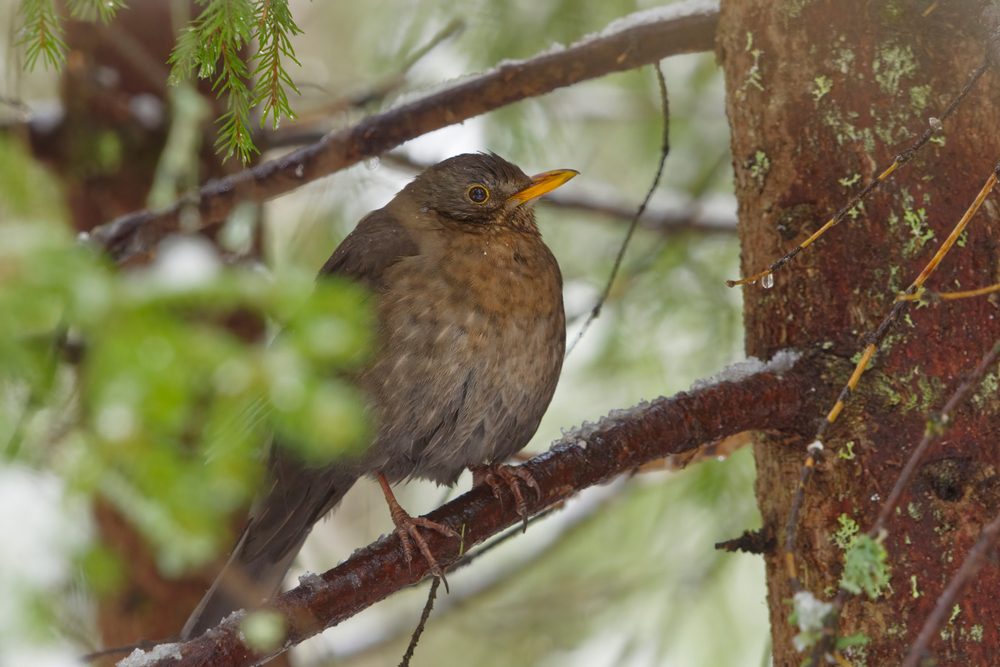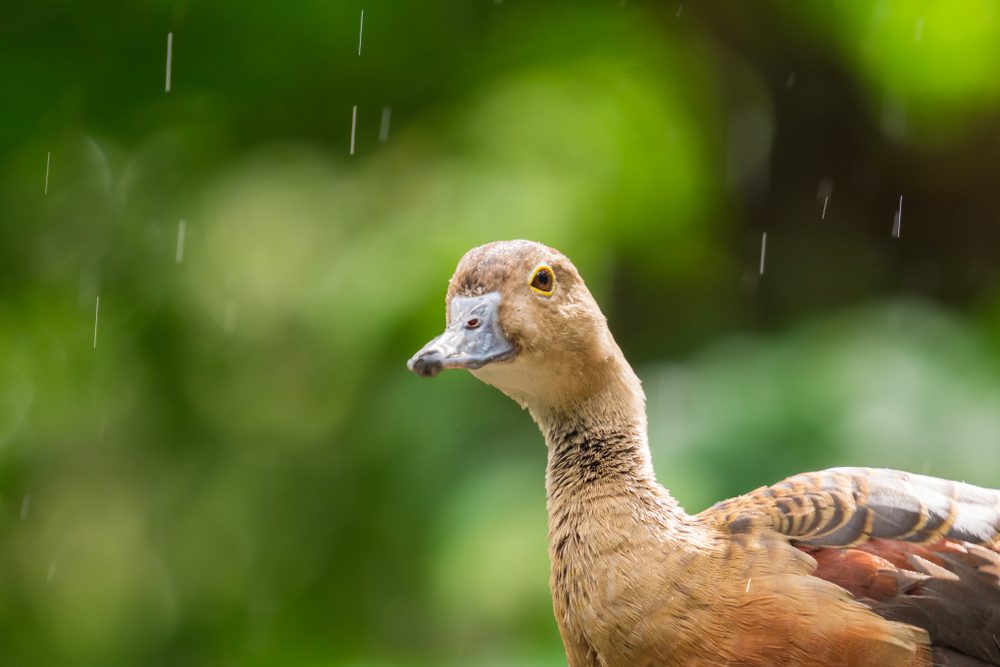We’ve all been there at one time or another: caught out in the rain. The sensible among us take shelter, while others might choose to stay out (ahem, Drew Barrymore) or turn to an umbrella or raincoat for protection. But what about birds?
Do they don their metaphorical wellies and splash about? Or will you find them shivering under a birdie brolly waiting for the downpour to pass? That, it seems, depends on the species. Different strokes for different folks, or, should we say, different tricks for different chicks.
You may have noticed as you pull up the hood of your coat that when it comes to the smaller birds we see most often, there seem to be fewer about during heavy rain. If they’re not in the skies, then where exactly are they?
Where do birds go when it rains?
Unlike humans, not all animals are so feebly equipped to face a few raindrops. Some insects, such as butterflies, have armored wings to protect them when the heavens open. Birds have pretty nifty waterproof feathers that put a Pac-a-Mac to shame.
They use their beaks to pick up oil from their preen glands, located near the tail, and rub it all over their feathers. This provides an oily coating that can repel water, keeping them dry in light rain. Therefore, if the shower isn’t too heavy, you’ll likely still see them going about their birdy business.
But when it really rains, it’s a different story.
Some birds opt to keep their feathers dry and take shelter – and judging by this Morepork owl’s bedraggled post-bath glow down, we have to agree it’s probably for the best.

Some birds, like this Common blackbird, hide from the rain in the trees. Image credit: Henri_Lehtola/Shutterstock.com
In torrential rain, birds will flatten their feathers to make them more water-resistant. They also adopt what may seem like a counterintuitive position, pointing their beaks toward the rain. The foolhardy stance ensures that rain (or hail) flows off of them and doesn’t infiltrate their feathers.
But even this can only take them so far. Wet feathers are cold feathers: when water makes its way into the air pockets between them, things can get pretty chilly. Birds – particularly small birds with a higher surface area to volume ratio – can be at risk of hypothermia when this happens.
So, during a downpour, small birds can often be found hiding under shrubs or in dense bushes and trees. They may also opt to huddle together for warmth and protection from the rain.
However, as we mentioned earlier, not all birds feel the same about rain. Some love the water so much that they take baths in it, splaying their feathers to ensure a good soaking.
Can birds fly in the rain?
Whether or not a species hides from or plays out in the rain, they all need to eat – meaning that at some point during a storm, they’ll have to brave the weather and go in search of food.
Thanks to their oily jacket, most birds can fly in the rain, at least for short distances. Some larger birds, like geese, ducks, swans, and gulls are frequent rainy flyers, but even these can struggle in heavy rain.

This Lesser Whistling-Duck seems unphased by the rain. Image credit: Supawit Srethbhakdi/Shutterstock.com
Having soggy wings can make flying difficult, as can the drop in air pressure that accompanies rain, meaning the process uses more energy. When winds are high, flying becomes especially dangerous. There also tends to be less food around during storms, meaning flying in the rain, while possible, isn’t always preferable.
Even seabirds, who are some of the strongest flyers and are no strangers to the water, tire of relentless rain. Some take detours to avoid cyclones, while others head inland – and some particularly reckless seabirds fly right into the eye of the storm. They don’t have a death wish, despite how it may seem, the tactic is actually thought to aid their survival by preventing them from being blown onshore where they might face flying debris.
It’s one way of dealing with a storm, and each to their own, but we think we’ll stick with our umbrella. Or, worst case scenario, wait it out in the bushes with the rain-shy small birds.
Source Link: Where Do Birds Go When It Rains?